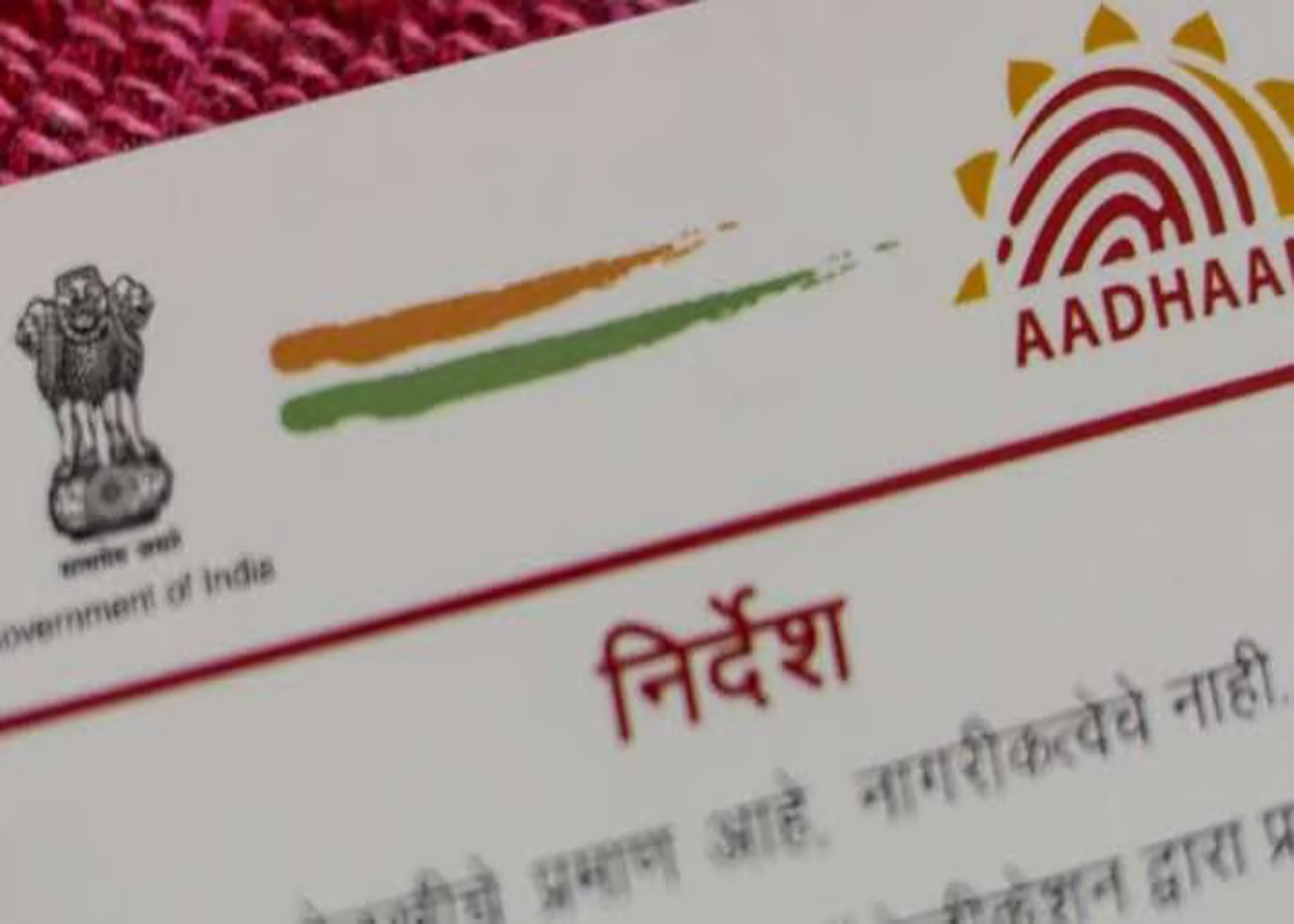National News
Spike In Aadhaar Payment Frauds Raises Security Concerns; Experts Link It With Demonetisation, Contractual Hiring

Approximately 29,000 incidents of Aadhaar Enabled Payment System (AePS) fraud have been reported on the National Cyber Crime Reporting Portal, according to Minister of State for Home Affairs, Bandi Sanjay Kumar. He recently shared this information in the Rajya Sabha. investigating agencies and industry experts to uncover the reasons behind these recurring cyber frauds.
The National Cyber Crime Reporting Portal (NCRP) [https://cybercrime.gov.in] was launched in 2020 as part of the Indian Cyber Crime Coordination Centre (I4C). The platform allows the public to report all types of cyber crimes, with a special focus on crimes against women and children. Incidents reported on this portal, their conversion into FIRs, and subsequent actions are handled by the respective State/UT law enforcement agencies according to legal provisions.
Experts believe that AePS-related fraud began to surge following demonetisation. “After 2016, many banks gradually started outsourcing various tasks, including documentation, technology, and even personnel. This led to the hiring of contract employees from outsourced firms. Nowadays, when you visit a bank, you’re likely to see new faces frequently. These contract employees come and go like daily wagers, yet they have full access to the banking system. Their contract jobs come with targets, such as opening 70 bank accounts a month. To meet these goals, they may resort to unethical means, as it directly affects their paychecks. Most of those arrested in connection with cybercrime are contract employees who had access to account holder information,” explained an expert who wished to remain anonymous.
Recently, the Mumbai Police uncovered several cybercrime cases in which the accused turned out to be bank employees who were assisting cybercriminals by creating accounts for illegal transactions. While the masterminds often evade capture, the bank employees end up becoming scapegoats.
N. Shankar, General Secretary of the All India Union Bank Employees Association, commented on the issue of outsourcing. “When the Reserve Bank of India (RBI) approved outsourcing, it issued guidelines covering both material and non-material outsourcing, emphasizing the ‘safety factors’ that banks must prioritize for customer security. The RBI also stressed the need for regular audits of outsourcing companies. If these audits are properly conducted, many potential issues could be identified in time,” he said.
Meanwhile, Mumbai Police officials believe that the banking sector as a whole requires greater scrutiny and stricter regulations to combat the rising cyber frauds. “Banks play a crucial role in enabling cyber fraud. Just as it’s easy to open a bank account, it’s equally easy to misuse the sensitive information of ordinary citizens for serious criminal activities without their knowledge. We have arrested numerous individuals, only to later discover that they had no direct involvement in the crime. The real perpetrators operate from remote locations, far beyond our reach. Protecting citizens from falling victim to these scams is imperative, and the banks must be part of the solution,” said a senior police official.
The minister highlighted the efforts being made under the ‘Citizen Financial Cyber Fraud Reporting and Management System’ (I4C) for the immediate reporting of financial fraud and preventing fraudsters from siphoning funds. He stated that over ₹2,400 crores have been saved across more than 7.6 lakh complaints. Additionally, a toll-free helpline number, 1930, is operational to assist in lodging cyber complaints. To date, over 5.8 lakh SIM cards and 1,08,000 IMEIs have been blocked, based on police reports, by the Government of India.
Crime
Mumbai: Malad Police Bust Fake Gold Racket, Arrest 5 In ₹25 Lakh Fraud

Mumbai: Malad police have arrested an interstate gang of five for cheating shop owner Dinesh Mehta of Rs 25 lakh by selling him fake gold. The accused, primarily from Rajasthan, were arrested in Gujarat and Virar.
The main accused, Babulal Waghela, who is wanted in multiple cases, falsely claimed to have discovered gold while digging near a Nashik temple. The gang gained Mehta’s trust by first showing him a silver coin, then giving him genuine gold beads to test. After Mehta handed over Rs25 lakh, they gave him a necklace made of copper and nickel.
Police traced and arrested Waghela, his wife, and three others, successfully recovering Rs15.45 lakh in cash. A fifth accused, Govind, remains wanted.
National News
Mumbai Weather Update For Dec 15, 2025: City Sees Sunny & Chill Start To The Week; AQI Slips To Poor Category At 188, Wadala Worst Hit

Mumbai: Mumbai woke up to a seemingly perfect winter morning on Monday, with clear blue skies, gentle winds and a noticeable chill in the air. However, the pleasant start was quickly overshadowed by a thick blanket of smog that hung over the city, dulling visibility and raising fresh concerns about deteriorating air quality. Despite favourable weather conditions, pollution once again emerged as Mumbai’s dominant challenge.
The India Meteorological Department (IMD) had forecast a bright and comfortable day, with temperatures expected to range between 19°C and 34°C. Yet, residents stepping out early in the morning were met with hazy surroundings and an acrid smell in the air. Visibility dropped in several areas, turning what should have been a refreshing winter day into an uneasy one for commuters, morning walkers and schoolchildren.
According to the air quality monitoring platform AQI.in, Mumbai’s overall Air Quality Index (AQI) stood at 188 in the early hours, placing the city in the ‘poor’ category. While marginally better than the alarming readings recorded late last month, the air remains unhealthy, particularly for children, the elderly and those with respiratory ailments.
The persistent pollution is due to dust and fine particulate matter generated by Mumbai’s relentless construction activity. Large-scale government infrastructure projects, including metro corridors, flyovers, coastal road stretches and road-widening works, along with intensive private real estate development, continue to add to the city’s pollution load.
Several areas emerged as severe pollution hotspots. The Wadala Truck Terminal recorded an alarming AQI of 345, categorised as ‘severe’, posing serious health risks even to otherwise healthy individuals. In Goregaon and Chembur, AQI levels were recorded at 277 and 267 respectively, both falling in the ‘unhealthy’ category. Vashi also reported an AQI of 263, while Colaba registered 237.
Suburban areas showed comparatively better readings, though air quality remained far from ideal. Charkop recorded an AQI of 65, Kandivali East 82 and Govandi 93, all falling under the ‘moderate’ category. However, areas such as Malad West and Jogeshwari East registered AQI levels of 127 each, placing them back in the ‘poor’ bracket.
For reference, AQI levels between 0–50 are considered ‘good’, 51–100 ‘moderate’, 101–150 ‘poor’, 151–200 ‘unhealthy’, and above 200 ‘hazardous’. With large parts of Mumbai nearing or crossing unhealthy thresholds, concerns are growing over long-term health impacts.
Several areas emerged as severe pollution hotspots. The Wadala Truck Terminal recorded an alarming AQI of 345, categorised as ‘severe’, posing serious health risks even to otherwise healthy individuals. In Goregaon and Chembur, AQI levels were recorded at 277 and 267 respectively, both falling in the ‘unhealthy’ category. Vashi also reported an AQI of 263, while Colaba registered 237.
Suburban areas showed comparatively better readings, though air quality remained far from ideal. Charkop recorded an AQI of 65, Kandivali East 82 and Govandi 93, all falling under the ‘moderate’ category. However, areas such as Malad West and Jogeshwari East registered AQI levels of 127 each, placing them back in the ‘poor’ bracket.
For reference, AQI levels between 0–50 are considered ‘good’, 51–100 ‘moderate’, 101–150 ‘poor’, 151–200 ‘unhealthy’, and above 200 ‘hazardous’. With large parts of Mumbai nearing or crossing unhealthy thresholds, concerns are growing over long-term health impacts.
National News
J&K to receive Rs 5.5 billion investment in tourism sector: Omar Abdullah

Srinagar, Dec 13 (IANS) Chief Minister Omar Abdullah said on Saturday that J&K is set to receive Rs 5.5 billion investment in the tourism sector under an externally funded project.
Omar Abdullah hoped that the investment and collective effort would help J&K establish itself again as India’s leading adventure tourism destination.
Earlier in the day, the Chief Minister inaugurated Asia’s longest ski drag lift at Kongdori, Gulmarg. This landmark addition will significantly enhance skiing infrastructure and further strengthen Gulmarg’s standing on the international winter sports map.
The Chief Minister also inaugurated the rotating conference hall at Affarwat, Gulmarg. He was accompanied by Advisor Nasir Sogandi, MLA Gulmarg Farooq Shah and MLA Zadibal Tanvir Sadiq.
Later Addressing a gathering of adventure tour operations, who are here to attend 17th annual convention of the Adventure Tour Operators Association of India (ATOAI) being held from December 17th to December 20th, the Chief Minister said Jammu and Kashmir has immense natural potential and, if properly blended with professional experience and coordinated work, there would be no difficulty in restoring its past position in adventure tourism.
Omar said he had made the point earlier as well that the success of tourism should not be measured by bringing tourists to Kashmir once, but real success would be achieved only when tourists feel motivated to return repeatedly, year after year.
He said the approach of the government and the tourism sector should always be centred on long-term engagement with visitors.
“Our attempt should be that tourists say they will not go anywhere else and will come only to Kashmir to celebrate their vacations. Such a goal could be achieved only if all stakeholders worked together,” he said.
The Chief Minister added that the tourism department and all related agencies must act in coordination to strengthen the sector and improve the overall tourist experience.
“It has been extremely difficult for Jammu and Kashmir, with setbacks and troubling incidents emerging from different places almost every month. At times, it felt as if the region was being repeatedly hit from one side or another,” he added.
Omar said that even the hope of some relief during winter did not fully materialize as the season remained largely dry, which further impacted tourism and those dependent on it for their livelihoods. He asked people to pray for snowfall, but not in such a measure that it becomes unbearable.
-

 Crime3 years ago
Crime3 years agoClass 10 student jumps to death in Jaipur
-

 Maharashtra1 year ago
Maharashtra1 year agoMumbai Local Train Update: Central Railway’s New Timetable Comes Into Effect; Check Full List Of Revised Timings & Stations
-

 Maharashtra1 year ago
Maharashtra1 year agoMumbai To Go Toll-Free Tonight! Maharashtra Govt Announces Complete Toll Waiver For Light Motor Vehicles At All 5 Entry Points Of City
-

 Maharashtra1 year ago
Maharashtra1 year agoFalse photo of Imtiaz Jaleel’s rally, exposing the fooling conspiracy
-

 National News1 year ago
National News1 year agoMinistry of Railways rolls out Special Drive 4.0 with focus on digitisation, cleanliness, inclusiveness and grievance redressal
-

 Maharashtra1 year ago
Maharashtra1 year agoMaharashtra Elections 2024: Mumbai Metro & BEST Services Extended Till Midnight On Voting Day
-

 National News1 year ago
National News1 year agoJ&K: 4 Jawans Killed, 28 Injured After Bus Carrying BSF Personnel For Poll Duty Falls Into Gorge In Budgam; Terrifying Visuals Surface
-

 Crime1 year ago
Crime1 year agoBaba Siddique Murder: Mumbai Police Unable To Get Lawrence Bishnoi Custody Due To Home Ministry Order, Says Report






















